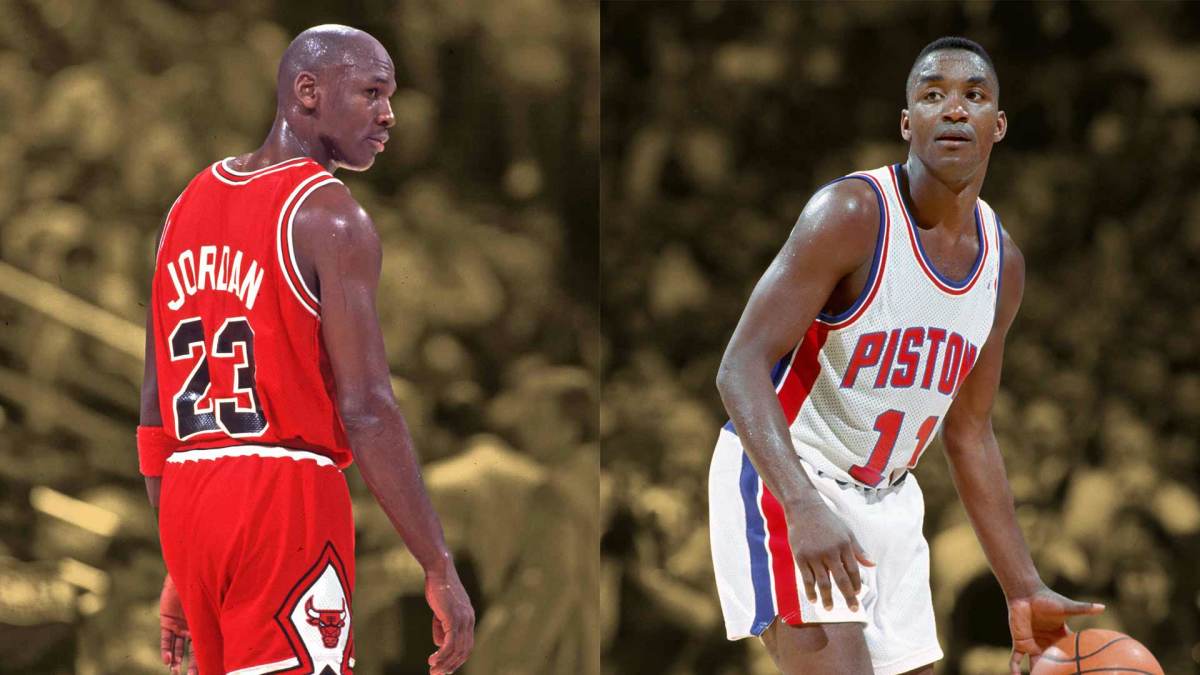“I paid a heavy price for that moment” – Isiah Thomas admits he has thoughts of regret for not shaking Michael Jordan’s hand after losing to him in the playoffs originally appeared on Basketball Network.
Isiah Thomas had a fulfilling NBA career, but if there was one moment that had a stain on his legacy was that notorious walk-off at the Palace of Auburn Hills after a game in the 1991 Eastern Conference finals.
Advertisement
After years of brutal battles, the Chicago Bulls finally overcame the Detroit Pistons, sweeping the two-time defending champions in four games. As the final seconds ticked away, the Pistons left the court without acknowledging their opponents, most notably without a handshake for Michael Jordan.
Thomas’ regret
Thomas, the leader and emotional spine of the Bad Boys, exited alongside Bill Laimbeer and others in a now-infamous display of cold resolve. At the time, it was viewed as standard fare in the Pistons’ combative culture.
Today, Thomas perhaps sees it differently.
“I would say I paid a heavy price for that moment,” Thomas said on First Take.
Advertisement
“And if that moment meant that I’m not selected to be on the Dream Team because of that moment, that’s hurtful; that cuts deep,” he regretted.
What once seemed like an isolated act of competitive bitterness has since been retroactively tied to one of the most conspicuous omissions in sports history: Thomas’s absence from the 1992 Olympic Dream Team.
Despite a résumé that included two NBA championships, a Finals MVP, five All-NBA selections and 12 NBA All-Star appearances, Thomas was left off a roster that included nearly every other marquee name of the era.
The narrative that MJ had a hand in the decision remains widely believed, even if not explicitly confirmed.
Advertisement
For Isiah, the walk-off moment became something larger than a playoff protest. It turned into a career pivot point, one that, fairly or not, may have influenced how basketball royalty was selected when the sport took its most iconic leap onto the global stage.
Dream Team snub
In 1992, Thomas had been one of the game’s most consistent winners.
Between 1984 and 1991, he led Detroit to five Eastern Conference finals, three NBA Finals and two titles. His gritty, orchestrated offense and ruthless edge were the bedrock of a team that beat Larry Bird’s Boston Celtics, Magic Johnson’s Los Angeles Lakers and Jordan’s Bulls in the postseason. At the time, there was no modern point guard with a clearer winning pedigree.
Advertisement
Yet as the NBA transitioned into a more commercial, globally palatable era in the early ’90s, Thomas found himself misaligned with the image the league sought to project. The Pistons’ brand of physicality and perceived sportsmanship, or lack thereof, was out of step with the new narrative being built around Jordan’s clean greatness.
And while Johnson and Bird, both Thomas allies at different points, were included despite injuries and age, Thomas was left watching from home as the Dream Team dazzled in Barcelona. The wound, clearly, still stings after many years.
“The only hole that’s missing on my résumé is an Olympic gold medal,” Thomas said. “And now to be left off the Dream Team. The criteria for the Dream Team was who’s done the most for the game and won the most championships. I thought that I was safe. So not making that team, that definitely hurt.”
Thomas has made peace with much of his legacy. As a player, he remains one of the greatest point guards of all time, a guard who combined fearlessness with finesse and toughness with uncanny court vision.
Advertisement
He outdueled Johnson in the Finals, once scored 25 points in a single quarter on a badly sprained ankle and carried Detroit to the top of the NBA without the benefit of a superteam.
But legacies are also shaped by perception. And in the case of the Detroit icon, the perception of one moment, those final seconds in Game 4 of the ’91 East finals, has lingered far beyond what it perhaps deserved.
Looking back, Thomas isn’t asking for sympathy. He’s offering reflection. Time has a way of softening even the hardest stances. And for a player who built his career on hard-nosed control, there’s something strikingly human in the vulnerability of hindsight.
This story was originally reported by Basketball Network on Jun 20, 2025, where it first appeared.
